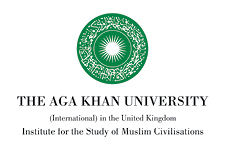About Us

Forewords by Professor Leif Stenberg, AKU-ISMC Dean
"The importance of the Indian Ocean, in both the past and present, cannot be overlooked. People, cultures, religions, and cargos have travelled across the Indian Ocean for as long as we have known throughout history. At the Aga Khan University’s Institute for the Study of Muslim Civilisations (AKU-ISMC), we are currently establishing a research programme that aims to study the many encounters, connections and interactions between communities and countries, including the exchange of ideas, material objects and trade across the Indian Ocean. This will be a truly multidisciplinary programme in which scholars of several disciplines can work jointly on projects addressing similar questions. I am really looking forward to following our research programme on the Indian Ocean – a development that will take the study of Muslim civilisations in the past and present at AKU-ISMC upwards and onwards!"
Forewords by Professor Jonas Otterbeck, Head of AKU-ISMC Research
“The Indian Ocean is connecting rather than dividing areas, a fact that has gained far too little interest in research. Yet, as regional studies have grown in importance in several fields, also the Indian Ocean has been rethought as a region; it has always been, but not in the analyses of scholars. Without ignoring national borders, focusing on the interconnectivity of the Ocean, historians, migration researchers, political scientists, religious studies scholars, linguists, and others will find new ways of describing socio-political development, trade, the spread of religious and artistic ideas, and changes in the environment. AKU-ISMC has unique contacts to pursue such research by being part of a university active in, not least, East Africa and Pakistan. In the upcoming years, we aim to continue and expand our prolific explorations of the Indian Ocean as a region.”
Introduction by Professor Stephane Pradines, MCIO Programme Manager
Our research programme is the reconnaissance of the Indian Ocean, not as a periphery but as a centre for the study of Muslim cultures. Previously built around the Mediterranean Sea, the study of Muslim cultures was based on the continuity between the Late Antiquity, the Roman World and the rise of Islam. Just like the Mediterranean - so well studied by Fernand Braudel - the Indian Ocean is a rich contact zone that is central to the understanding cultural diversity in this vast region. Cultural encounters across the Indian Ocean through the centuries have given rise to cities, ports and civilisations, which, while remaining distinctive, also exhibit layers of shared knowledge. Cultural contacts, exchanges and networks were facilitated by the sea as a link between these diverse worlds such as Asia, India, the Middle East and Africa.


